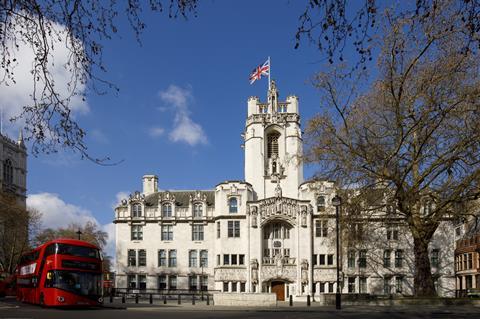Clinical negligence lawyers have expressed their bitter disappointment at a landmark judgment denying grieving relatives from making claims for psychiatric illness.
Judges of the Supreme Court ruled by six to one in Paul and another v Royal Wolverhampton NHS Trust that doctors did not owe a duty of care to a patient’s close family to protect them from illness after the death or medical crisis of a relative.
Giving lead judgment, Lord Leggatt and Lady Rose said that a line for liability must be drawn somewhere and that wherever the line was drawn, some people who suffer what may be a serious illness in connection with another person’s death will be left uncompensated.
‘There is a rough and ready logic,’ they said, ‘in limiting recovery by secondary victims to individuals who were present at the scene, witnessed the accident and have a close tie of love and affection with the primary victim.’
The outcome caused despair and consternation from claimant lawyers who have campaigned for relatives to be eligible for compensation for witnessing the death or serious injury of a loved one.

Maternity lawyer Natalie Cosgrove, a partner with national firm Ashtons Legal, said it was a ‘very sad day for claimants’, adding: ‘When dads and partners feel they don’t matter - now they know the law feels the same.’
Richard Baker KC, a barrister with 7BR Chambers, said: ‘There have been a few times in my career when I have felt genuine embarrassment at the state of the law. This is one of them.’
Jim Robottom, of Matrix Chambers, said he was ‘gutted’ by the Paul decision. ‘I’ve represented many people in my career who suffered PTSD after seeing the aftermath of loved ones taking their own lives after negligent mental health care,’ he said. ‘Thinking of those getting calls to say they have no claim today.’
However Charles Bagot KC, who represented the hospital trust, said that the court had decided that a doctor who enters into a doctor-patient relationship could not be assumed to have responsibility for the health of members of their family. ‘Therefore, no duty of care is owed by the doctor to those relatives in the circumstances', he added. ‘To impose such a responsibility on hospitals and doctors would go beyond what, in the current state of our society, is reasonably regarded as the nature and scope of their role.’
Jonathan Fuggle, partner at Browne Jacobson, who acted for the trust, added: 'For many years the law relating to claims for psychiatric harm has developed in a piecemeal way through case law that seemed to conflict. The decision by the Supreme Court provides welcome clarity for lawyers and their clients.'
This article is now closed for comment.






























17 Readers' comments